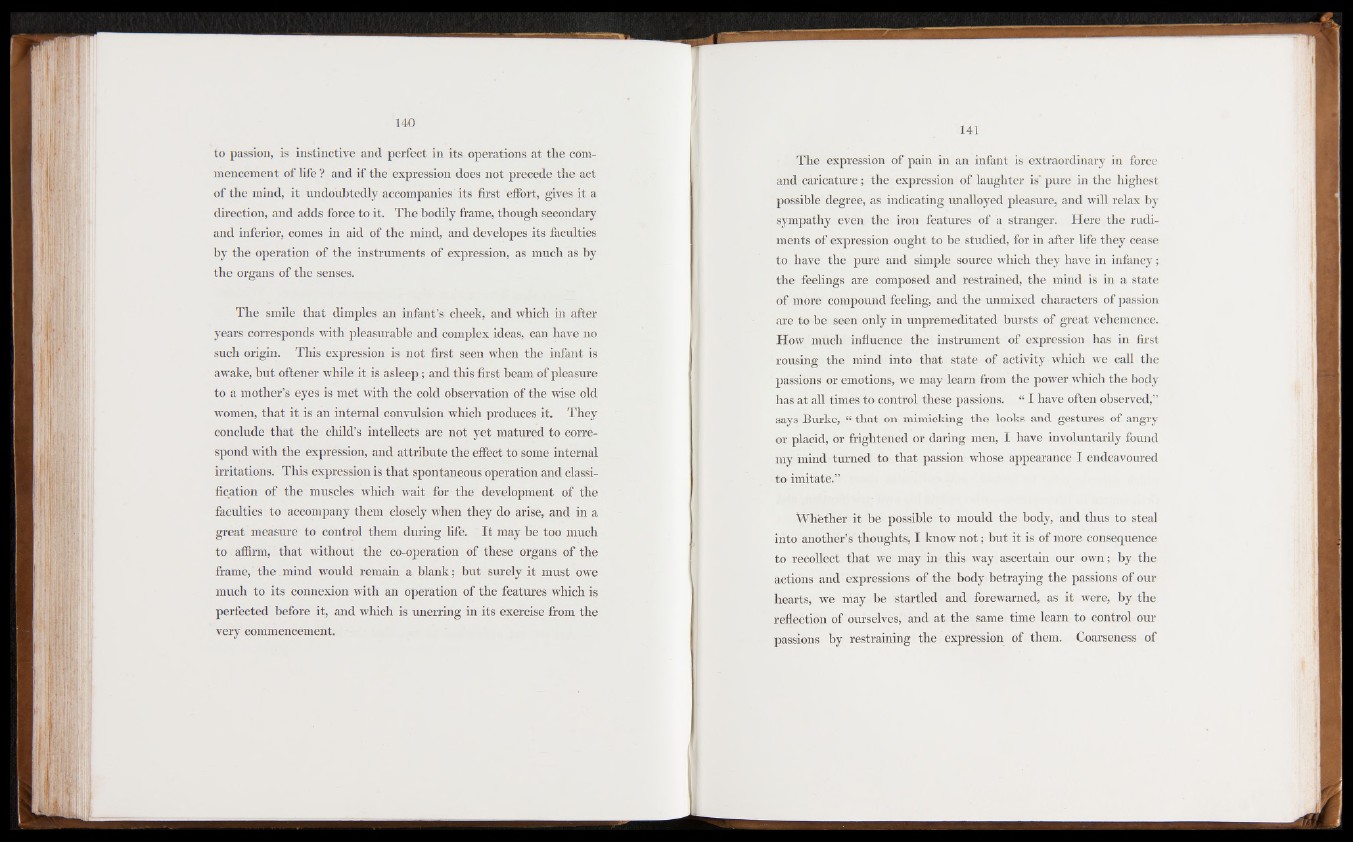
to passion, is instinctive and perfect in its operations at the commencement
of life ? and if the expression does not precede the act
of the mind, it undoubtedly accompanies its first effort, gives it a
direction, and adds force to it. The bodily frame, though secondary
and inferior, comes in aid of the mind, and developes its faculties
by the operation of the instruments of expression, as much as by
the organs of the senses.
The smile that dimples an infant’s cheek, and which in after
years corresponds with pleasurable and complex ideas, can have no
such origin. This expression is not first seen when the infant is
awake, but oftener while it is asleep; and this first beam of pleasure
to a mother’s eyes is met with the cold observation of the wise old
women, that it is an internal convulsion which produces it. They
conclude that the child’s intellects are not yet matured to correspond
with the expression, and attribute the effect to some internal
irritations. This expression is that spontaneous operation and classification
of the muscles which wait for the development of the
faculties to accompany them closely when they do arise, and in a
great measure to control them during life. It may be too much
to affirm, that without the co-operation of these organs of the
frame, the mind would remain a blank; but surely it must owe
much to its connexion with an operation of the features which is
perfected before it, and which is unerring in its exercise from the
very commencement.
The expression of pain in an infant is extraordinary in force
and caricature; the expression of laughter is* pure in the highest
possible degree, as indicating unalloyed pleasure, and will relax by
sympathy even the iron features of a stranger. Here the rudiments
of expression ought to be studied, for in after fife they cease
to have the pure and simple source which they have in infancy ;
the feelings are composed and restrained, the mind is in a state
of more compound feeling, and the unmixed characters of passion
are to be seen only in unpremeditated bursts of great vehemence.
How much influence the instrument of expression has in first
rousing the mind into that state of activity which we call the
passions or emotions, we may learn from the power which the body
has at all times to control these passions. “ I have often observed,”
says Burke, “ that on mimicking the looks and gestures of angry
or placid, or frightened or daring men, I have involuntarily found
my mind turned to that passion whose appearance I endeavoured
to imitate.”
Whether it be possible to mould the body, and thus to steal
into another’s thoughts, I know not; but it is of more consequence
to recollect that we may in this way ascertain our own; by the
actions and expressions of the body betraying the passions of our
hearts, we may be startled and forewarned, as it were, by the
reflection of ourselves, and at the same time learn to control our
passions by restraining the expression of them. Coarseness of